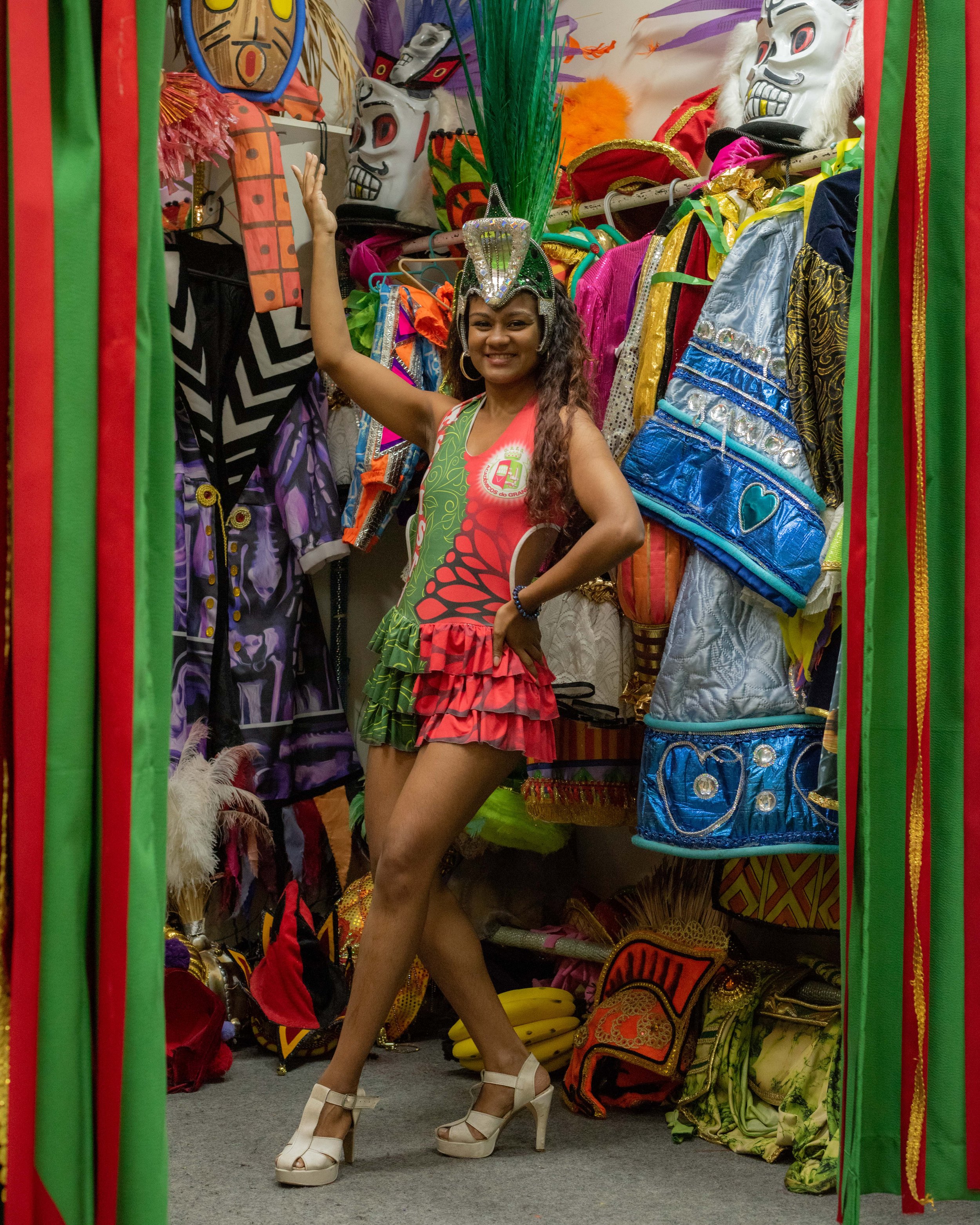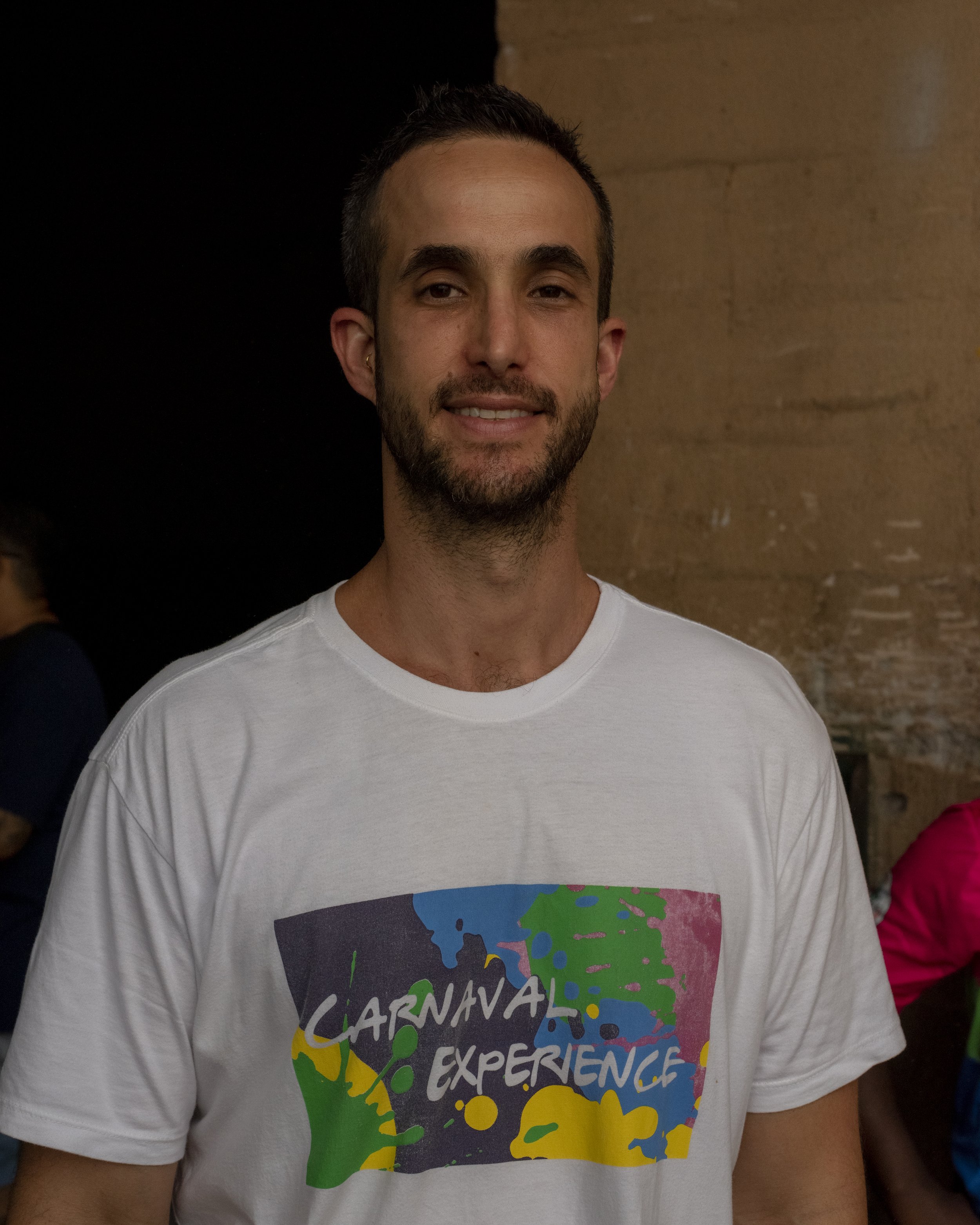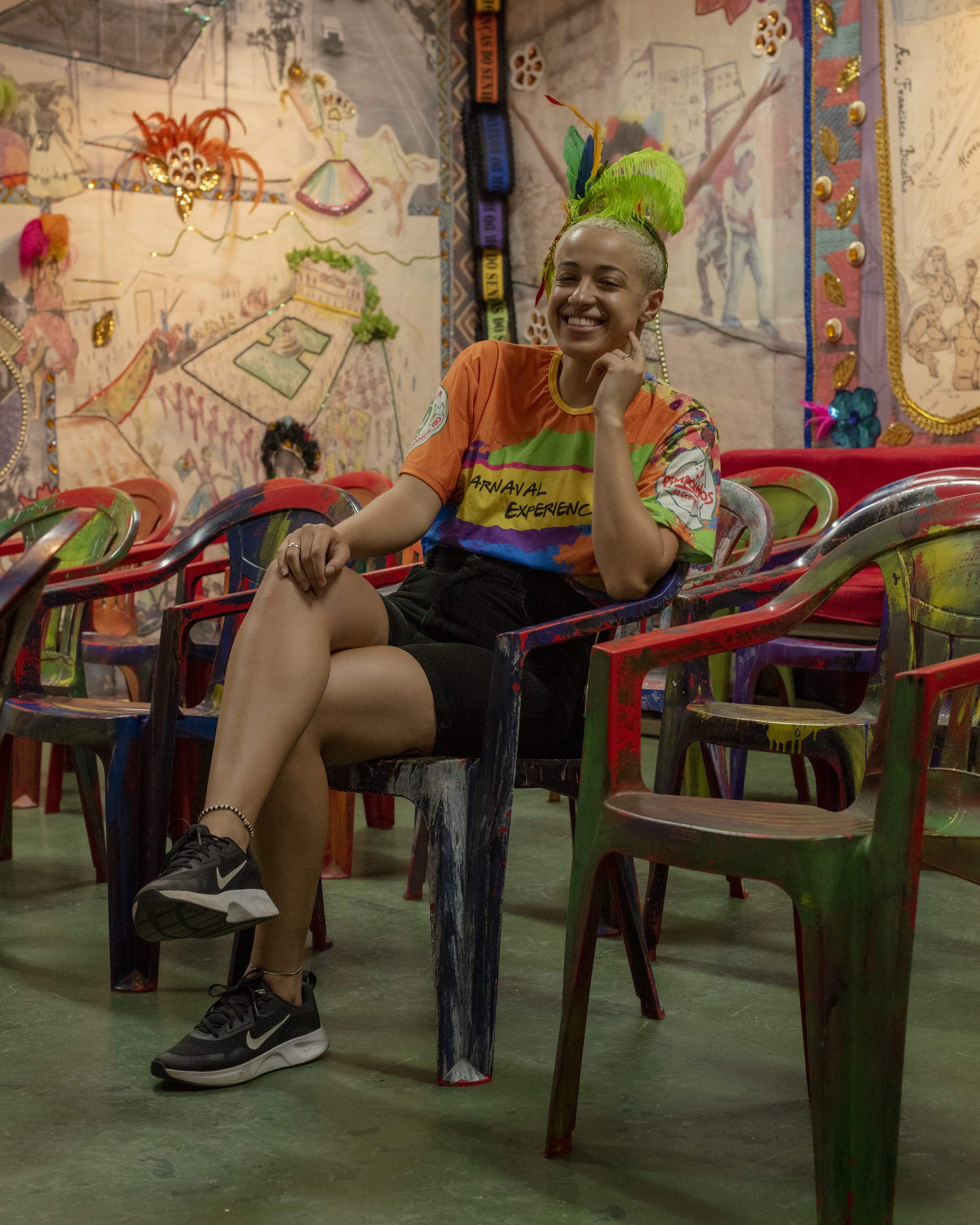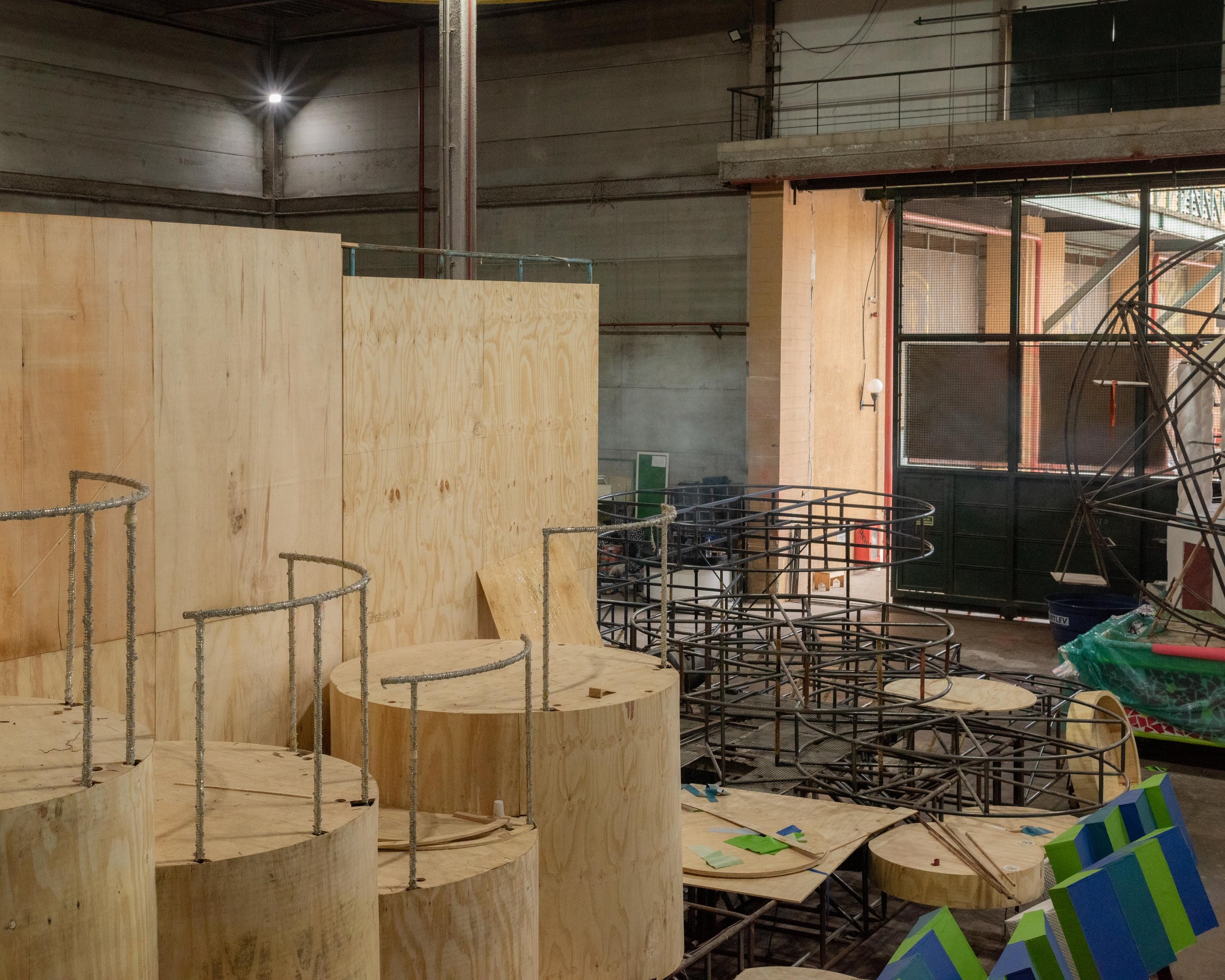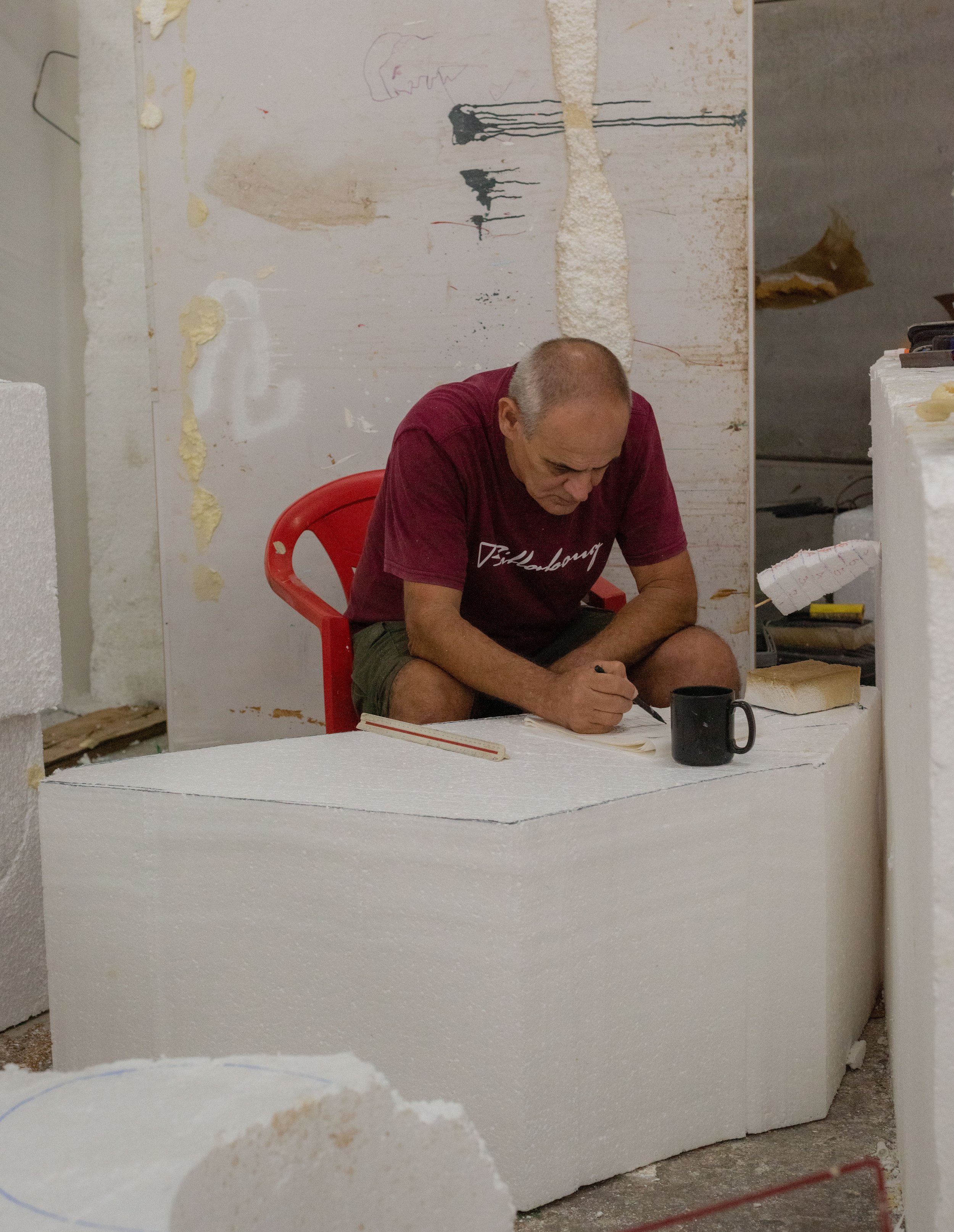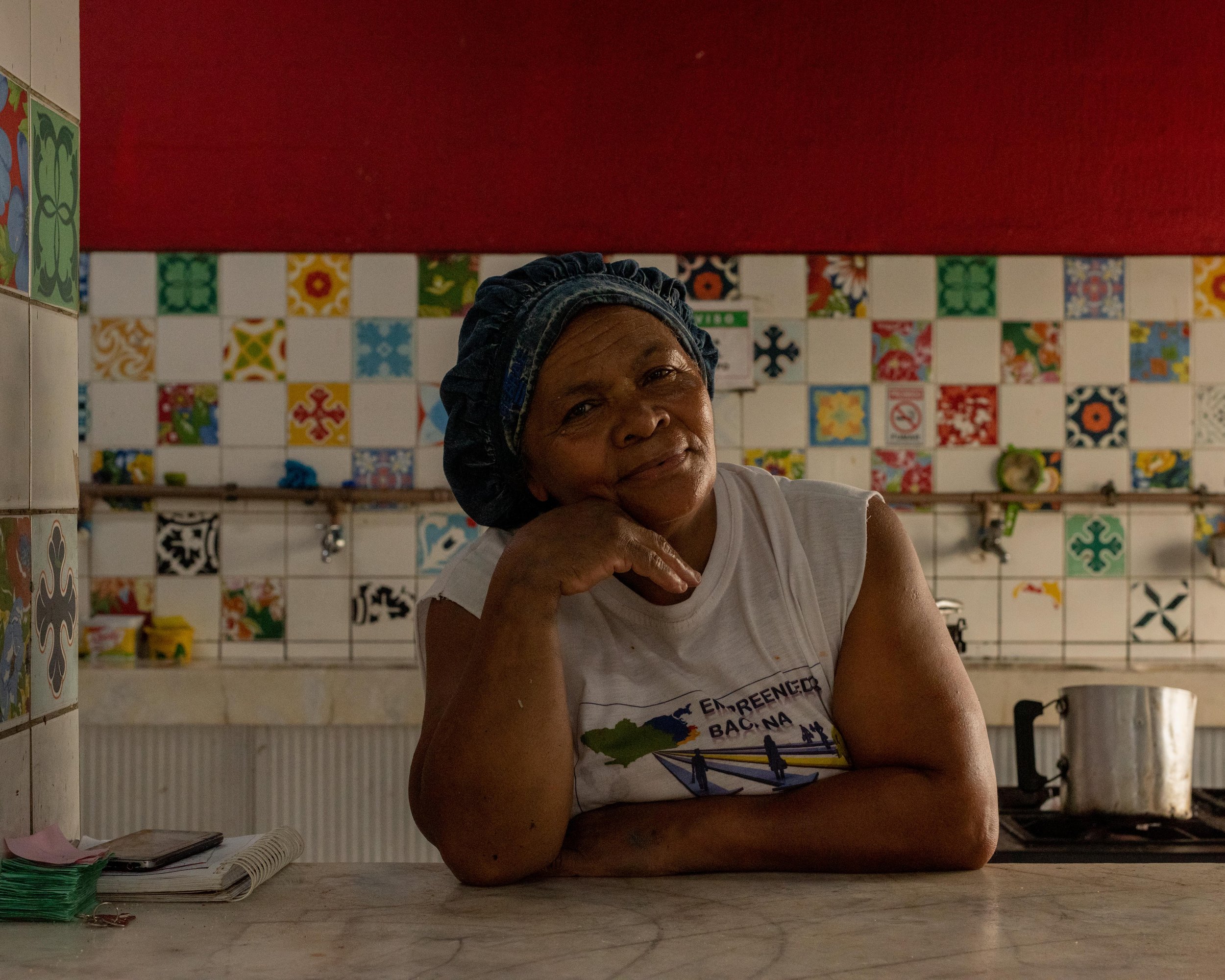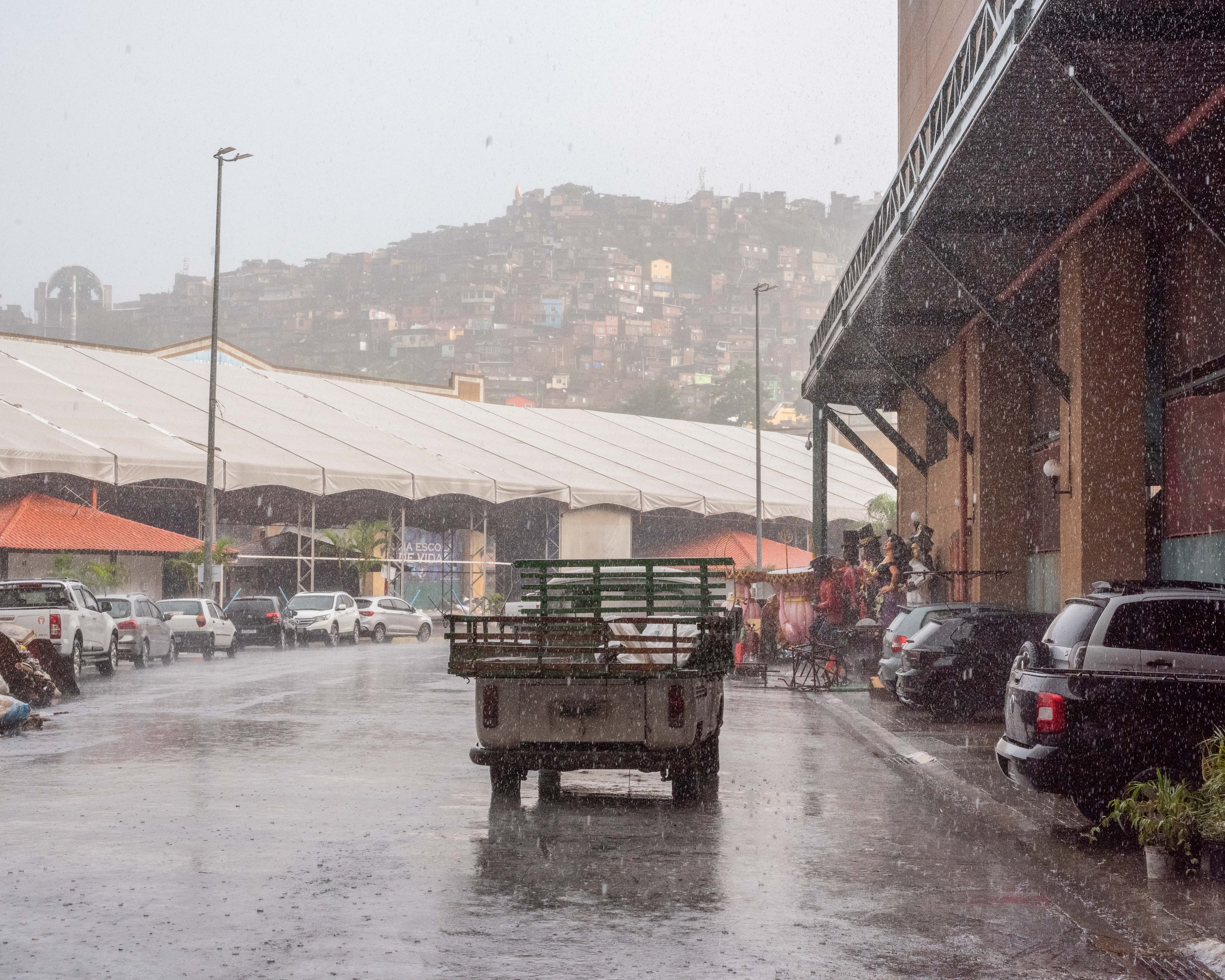Beyond The Samba Beat
Behind the scenes at Rio’s most ethical and empowering Samba school
Words by Imogen Lepere. Images by Mark Rammers
In a shadowy warehouse in the district of Rio de Janeiro known as Samba City, a crew of artisans are carving a styrofoam fiesta into being. Their knives cut as smoothly as if through butter to create figures the size of gods in Greek temples, some clutching guitars, others dancing. Although there are no windows, sunshine streams in through the plastic roof, bouncing off the flakes of styrofoam that cling to the workers’ skin and bathing everything in a celestial glow.
The warehouse is a hotbed of creative talent. On the lower floor, woodworkers and welders build the floats dreamed up by the conceptual team, whose studio on the second level is filled with sketches and moodboards. On the third floor, the sculptors, basketweavers, tailors and metalworkers work together to create the costumes and sets.
A woman who’s been working at the Grande Rio Samba school for 30 years explains how meaningful it is to her. “You can’t understand how much passion we have – it’s our lives. We come from Duque de Caxias and often choose to sleep under the tables rather than lose time travelling the 20km into work,” she says, barely looking up from the castle window she’s papier-mâché-ing into being.
For Cariocas (as Rio locals are known), Samba schools are similar to football teams. There are more than 70 in the city, each associated with a different neighbourhood, mostly the poorer ones known as favelas (although the term ‘community’ is more politically correct). Every year they compete with one another in massive dance parades known as Carnival.
“Samba is so much more than a rhythm,” says Akiva Potasman, Grande Rio’s Carnival Experience director.
“It has its roots in the music 8 million enslaved Africans brought from their homeland. Originally carnival was segregated, but today samba schools are some of the most democratic spaces in the country. After 400 years of slavery carnival represents liberty, community and a united Brazil.”
Aside from being a leader in terms of recycling (costumes and props from previous years are donated to schools in the lower leagues), Grande Rio is unique in terms of its social impact. It’s the only school to have its own NGO, Pimpolhos, which trains children from Duque de Caxais in dance, music, languages and design, with a focus on being mindful of waste. The aim is to encourage cultural pride as well as to provide students with skills that’ll improve their chances of getting a job.
One such former student is Gabriella Simoes, who we meet among the costume cupboard’s bejewelled leotards and flocks of feathered masks. She joined Pimpholhos when she was five, and it’s where she learnt the computer skills that are now vital to her work as a part-time nurse. “Grande Rio is my family and the Samba rhythm beats in my blood. I’ll never stop dancing – it makes life so much lighter.”
Top tier Samba schools make around $2 million USD every year from sponsorships, government grants and ticket sales. However, all of that is needed to buy materials and to pay the 300 craftspeople who work full-time for the nine months prior to Carnival. Around 50% of the NGO’s funding comes from donations and the other half from tourists paying for the ‘Samba Experience’, a warehouse tour that offers a behind-the-scenes glimpse into the passion that makes Carnival a reality.
As we head downstairs, a summer storm causes a power cut. The seamstress coaxing a cloud of petticoats into being heads to the doorway for a breath of air. She’s joined by men holding still smoking blowtorches and women in feathered hats. “Most of them learned their skills from relatives who’ve been doing this for generations,” whispers Potasman. “If you want to know what people living their traditions looks like, this is it.”
Imogen Lepere and Mark Rammers visited Grande Rio Samba school courtesy of Jacada travel, who arranged return flights from London Heathrow to Rio de Janeiro, accommodation at Hotel Emiliano, and a tour of Rio’s sights. (jacadatravel.com)





